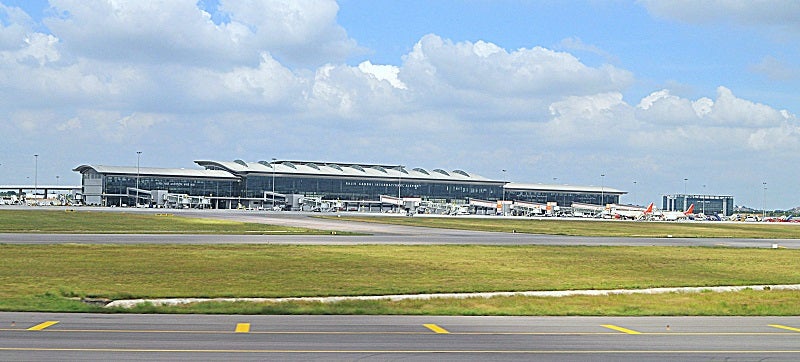
GMR Group is planning to invest $840m (Rs63bn) in Rajiv Gandhi International Airport (HYD) in Hyderabad, India, to increase the aerodrome capacity to 34 million passengers per annum by 2024.
The majority of the funds for implementing the expansion project will be raised through the issuance of bonds.

Discover B2B Marketing That Performs
Combine business intelligence and editorial excellence to reach engaged professionals across 36 leading media platforms.
GMR Airports deputy CEO Antoine Crombez was quoted by Press Trust of India as saying: “This is as part of Hyderabad (airport) expansion of both the domestic side and international side of the airport. We are investing $840m (Rs63bn).
“It is an investment to expand capacity to reach 34 million passenger capacity by 2024.”
He added that funds for initiating the expansion have been secured.
In January, the Hyderabad airport operator GMR Hyderabad International Airport Limited (GHIAL) announced that it would raise $300m by issuing bonds in the international bond market to fund the airport’s development plans.

US Tariffs are shifting - will you react or anticipate?
Don’t let policy changes catch you off guard. Stay proactive with real-time data and expert analysis.
By GlobalDataRajiv Gandhi International Airport, which is constructed to handle 12 million passengers annually, managed more than 21.50 million passengers during the fiscal year (FY) 2020.
However, hit by Covid-19-related travel curbs, the airport recorded passenger traffic of eight million in FY 2020-21, a de-growth of 63% slump over the prior year.
Currently, the demerger of airports vertical from GMR Infrastructure is in progress, with its completion expected by the end of this year.
In a separate development, reports stated that the Indian Government will now commence work to monetise Air India’s four other subsidiaries, including Alliance Air, as well as more than $1.96bn (Rs147bn) worth of non-core assets.
The move follows the recent privatisation of Air India, with salt-to-software conglomerate Tata group placing a winning bid of $2.4bn (Rs180bn) to take over the debt-laden national airline.
Last month, the Air India disinvestment plan entered the final phase, with Tata Sons and SpiceJet promoter Ajay Singh submitting their final bids to acquire the airline.
Tata finally won the bid, regaining control of an airline that was originally founded in 1932 before it was nationalised in 1953.





